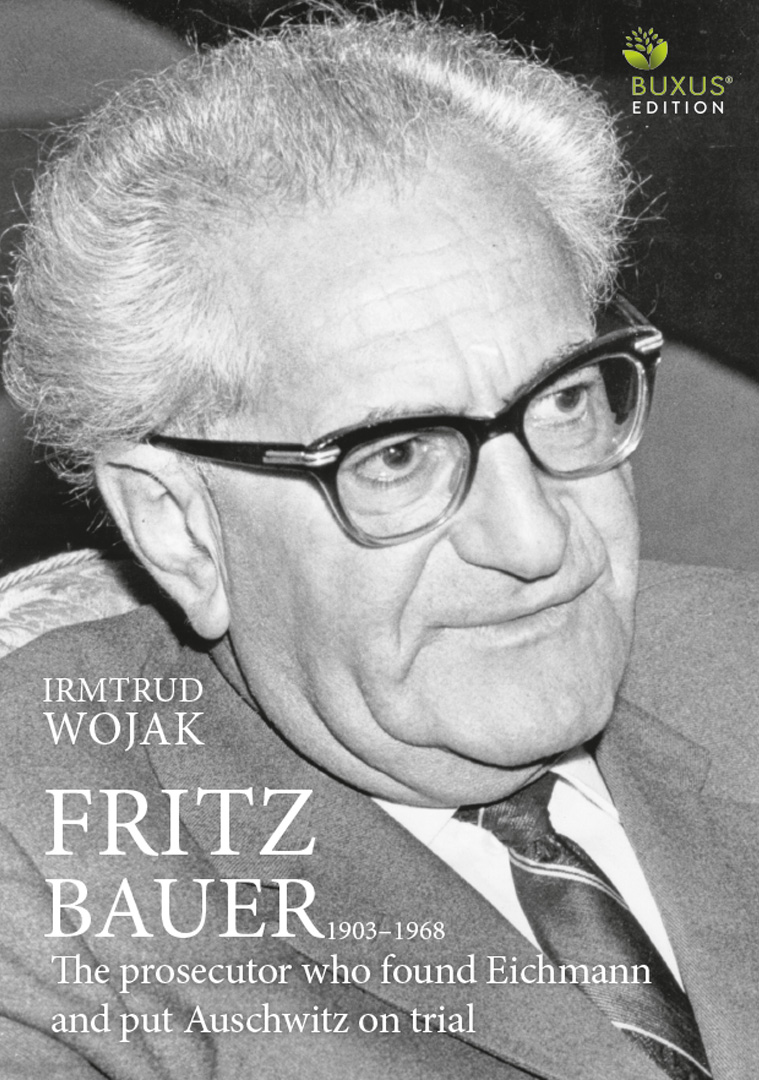
The jurist Fritz Bauer brought Auschwitz, the crimes of the Wehrmacht, Nazi justice and Nazi medicine to justice. For this reason, hostility and death threats pursued him until his death. Bauer, who survived concentration camp imprisonment, was the voice of the survivors after the Holocaust.
ISBN: 978-3981761412
The biography of the advocate of human rights
“Resistance is the refusal to obey an unjust order or law, is the help given to the victims of an evil state.”
The jurist Fritz Bauer knew what he was talking about. Himself a resistance fighter and exile, he brought Auschwitz, the crimes of the Wehrmacht, Nazi justice and Nazi medicine to trial as a persecuted member of the Nazi regime. Hostilities and death threats therefore pursued him until his death. Bauer consistently spoke of the millions of Nazi perpetrators and opposed the trivializing legal construction of aiding and abetting. Denazification and democratization were Bauer’s main concerns after twelve years of Nazi rule.
Wouldn’t everyone have been entitled, indeed obliged, to help the persecuted? After so much violence and inhumanity, Bauer wanted to give human rights the acceptance they deserved. Tolerance was to become recognition of the other. He stood on the side of the weakest in society, fought for the rights of prisoners as well as those of the persecuted. Criminal law reform and a humane penal system were his main concerns, resocialization his goal.
Fritz Bauer wanted to create a new law. Germans needed a lesson in current international law, he said. Actions of resistance united love of truth, justice and humanity, the goal was a humane existence for all. “We are to be our brother’s keeper,” Bauer declared. “That seems to me the task of a democratic and social and humane right. That would be the love of humanity that religions talk about.”
Irmtrud Wojak is managing director of BUXUS STIFTUNG gGmbH and founder of the Fritz Bauer Forum in Bochum. She is a historian, author and curator. Her research focuses on contemporary legal history, exile and political “cultures of memory,” and a historiography that understands and explores resistance as a struggle for human rights. As a Frieda L. Miller Fellow at the Radcliffe Institute for Advanced Study (Harvard University), she studied the resilience of individuals who, in the face of prevailing bias and political discrimination, maintain a standpoint based on legal norms and compassion. In 2014, she began the Fritz Bauer Library interactive research and education project. In 2004, I. Wojak curated the first major exhibition on the Auschwitz trial, and in 2009 she published the authoritative Fritz Bauer biography. In 2008, she completed her habilitation and received her venia legendi at the Gottfried Wilhelm Leibniz University of Hanover. Until 2005, she was deputy director at the Fritz Bauer Institute in Frankfurt. She was head of the Historical Department of the International Tracing Service (Bad Arolsen) in 2007/08 and founding director of the “NS Documentation Center” Munich 2009-2011. Irmtrud Wojak is a lecturer at the University of the Federal Armed Forces Munich.
| Execution | Softcover |
|---|